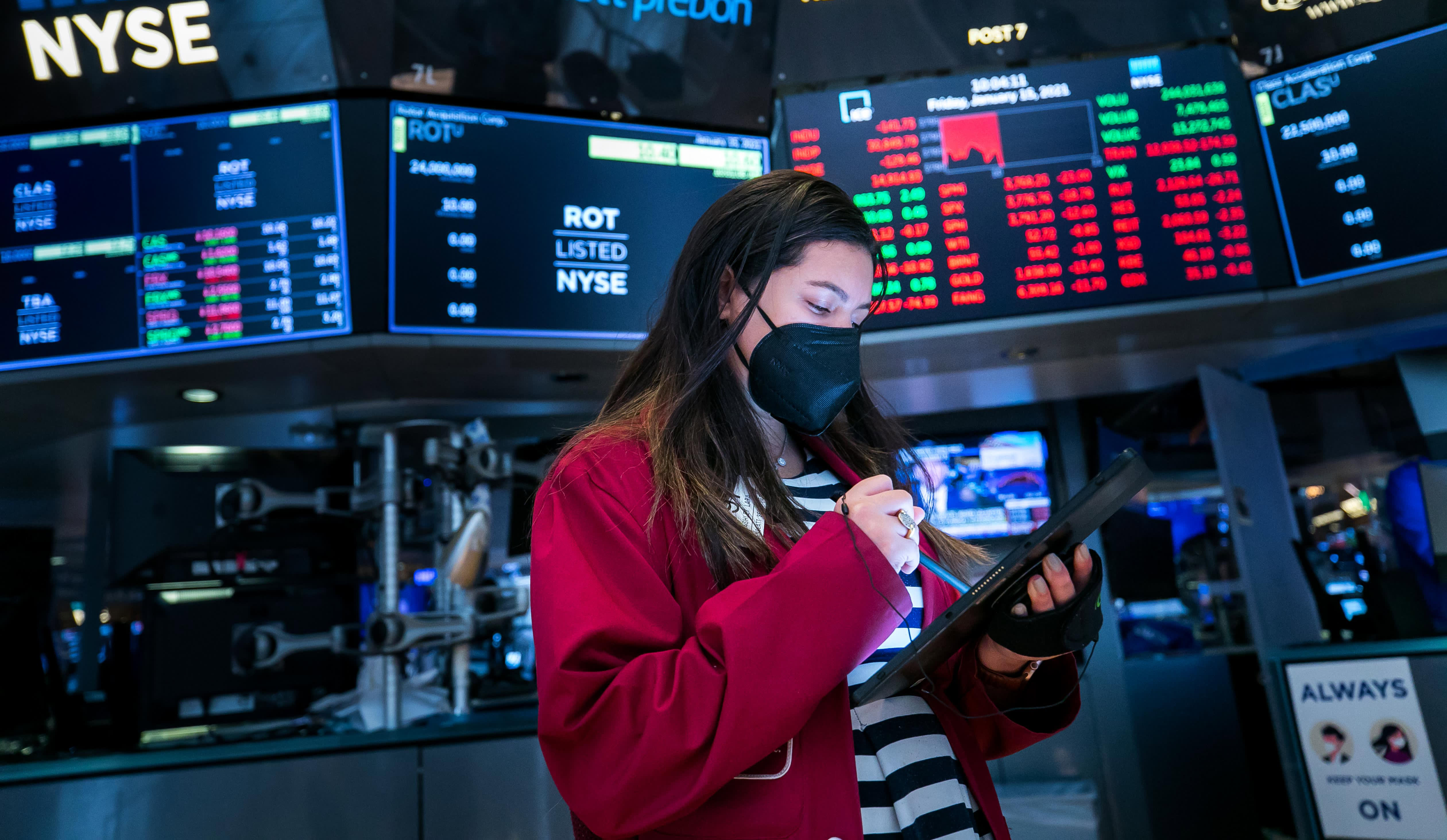Dow falls 560 points amid surging yields, Nasdaq sheds 3.5% in worst sell-off since October

U.S. stocks fell sharply Thursday as an outsized surge in bond yields spooked investors, who rushed to dump risk assets, especially high-flying technology names.
The Dow Jones Industrial Average dropped 559.85 points, or 1.8%, to 31,402.01, slipping from a record high. The S&P 500 lost 2.5% to 3,829.34 in its worst day since Jan. 27. The tech-heavy Nasdaq Composite slid 3.5% to 13,119.43, posting its biggest sell-off since Oct. 28. Alphabet, Facebook, and Apple all fell more than 3%, while Tesla dropped 8.1%. Microsoft shed 2%.
The major averages tumbled in a rapid fashion as the 10-year Treasury yield soared as high as 1.6% in a sudden move that some described as a “flash” spike. The yield later settled back down to around 1.52%, its highest level since February 2020.
“It is all about bond yields today,” said Ryan Detrick, chief market strategist for LPL Financial. “There was a flash spike in the 10-year yield and that upset the apple cart, as higher yields are spooking the stock market. Could there be more inflation coming than what most think? Although the Fed isn’t worried about that, the market might be.”
The jump also put the benchmark rate above the S&P 500’s dividend yield, meaning that equities — which are considered riskier assets — have lost their premium over bonds. The milestone could exacerbate the move out of stocks as they become less attractive.
Higher rates tend to hit the technology sector especially hard as the group relies on easy borrowing for superior growth. The tech-heavy Nasdaq has dropped 5.4% this week, on pace for its second weekly loss in a row. Consumer discretionary and info tech are the two biggest losers among 11 S&P 500 sectors, falling 5.4% and 4.5%, respectively.
It’s “just a full on rout in the bond market. So that filters into everything else,” said Evercore ISI strategist Dennis DeBusschere. “It looks like we just had a flash move in bonds. With a puke move that drove [10-year] yields to 1.6%… We just have to wait for some form of equilibrium in bonds.”
Investors are rotating into areas of the market that would benefit from an economic reopening the most. Energy has gained 6.8% this week alone, the biggest winner by far. Industrials and financials are the only two other sectors in the green week to date.
Yields added to their advance even after Federal Reserve Chair Jerome Powell emphasized the central bank’s commitment to easy policy and downplayed the risk of inflation, saying it could take three years or more before the Fed’s goals are reached.
Investors shrugged off better-than-expected economic data out Thursday. First-time jobless claims totaled 730,000 for the week ended Feb. 20, versus a print of 845,000 expected by economists polled by Dow Jones. Meanwhile, durable goods orders increased by 3.4% in January, compared to a Dow Jones consensus of 1.0% growth.
“U.S. stocks will continue to closely take [their] cue from the trajectory of Treasury yields,” said Edward Moya, senior market analyst at OANDA. “The Nasdaq will continue to lead the slide lower, while some investors will prefer to continue the rotation back into REITs, consumer staples, financials, and utilities.”
GameStop, the controversial meme stock whose massive short squeeze shocked Wall Street last month, is on the rise again. Shares gained 18.6% in volatile trading after doubling in the previous session on the reported ousting of a chief executive.
— CNBC’s Tom Franck contributed reporting.
Subscribe to CNBC PRO for exclusive insights and analysis, and live business day programming from around the world.



